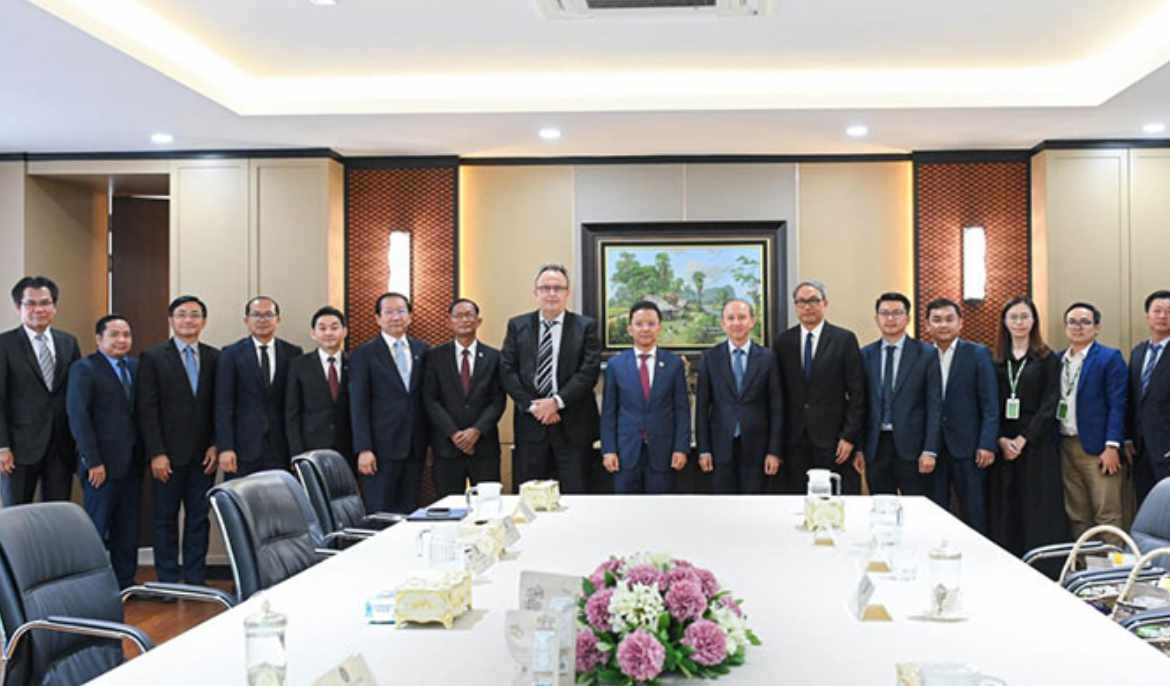Following a year of success, a French cashew nut and dried mango production company is planning to expand its investment in Cambodia to export a wider range of agricultural products to 6,000 distribution points across France.
The proposal was discussed during a meeting between Hem Vanndy, Minister of Industry, Science, Technology & Innovation (MISTI), and Laurent Strauch, Chief Executive Officer of Smart Eden in Phnom Penh on Tuesday.
The meeting was facilitated by Hun Lak, Secretary General and Spokesperson of the Cambodian Oknha Association (COA).
Strauch highlighted the successful export of Cambodia’s cashew nuts and dried mangoes, which have been well-received by French consumers.
“Smart Eden has been exporting cashew nuts and mango seedlings from Cambodia since 2024 and has received strong support from customers in France,” he said.
Strauch also shared insights into the company’s operations and its decade-long journey as a distributor in the French market, which now boasts a robust network of over 6,000 stores across the country.
“This year, we aim to expand our product range from 10 to 15 agricultural items, including rice, pepper, palm sugar, and biochar. We also plan to produce cashew butter for export to France,” he added.
Additionally, Strauch expressed interest in leveraging Cambodia as a strategic hub for distributing high-quality French products across the region.
During the meeting, the MISTI Minister congratulated the company on its success in exporting cashew nuts and cashew seedlings from the Kingdom.
He emphasised that the Royal Government of Cambodia (RGC) prioritises the development of the cashew sector as a strategic commodity. “Our goal is to position Cambodia as one of the world’s leading suppliers of cashew products,” he said.
Vanndy underscored the importance of market-driven supply chain integration to achieve economies of scale and effectively meet market demands.
He also briefed the delegation on ongoing efforts to enhance the national quality infrastructure, including improvements in laboratory services, national standards, and research and development, particularly in the food sector, to elevate product quality and strengthen export competitiveness.
“MISTI supports companies in the production of cashew butter and encourages them to explore other high-potential Cambodian products in collaboration with working groups and partners, including local entrepreneurs,” he added.
Speaking to Khmer Times, Uon Silot, President of the Cashew Nut Association of Cambodia (CAC), welcomed the planned investment expansion by the French company, noting its positive impact on local communities.
“Increased agricultural investment adds value for farmers and helps create jobs, ultimately reducing the number of migrant workers,” he said.
The CAC president stressed the importance of market diversification in expanding opportunities for producers. “I believe the government institutions are keen to explore new markets, particularly in Europe, which demands high standards.”
He added that gaining access to the European market would signify that Cambodian products meet international quality benchmarks and are globally recognised.
Chey Tech, a socio-economic researcher, noted that in recent years, Cambodia’s cashew nut exports – both raw and processed – have gained significant interest from international markets, solidifying the country’s position as the world’s second-largest cashew supplier, often referred to as the ‘Kingdom of Cashew Nuts’.
Regarding mangoes, he highlighted that we have around 30 processing companies, primarily owned by Chinese and local investors. Both fresh and dried mangoes are mainly exported to China and European markets.
“Comparing the two commodities, the government has implemented policies to promote the cashew industry, whereas mango production has yet to receive significant support,” he said.
Meanwhile, Tech added that the Ministry of Economy and Finance (MEF) and the Council for the Development of Cambodia (CDC) are exploring the establishment of an Agri-Food Industrial Park (AIP).
“The concept is similar to a Special Economic Zone (SEZ), but the AIP will focus specifically on processing raw agricultural products, particularly cashew nuts, with support from the Cambodia Australia Partnership for Resilient Economic Development (CAPRED),” he added.



